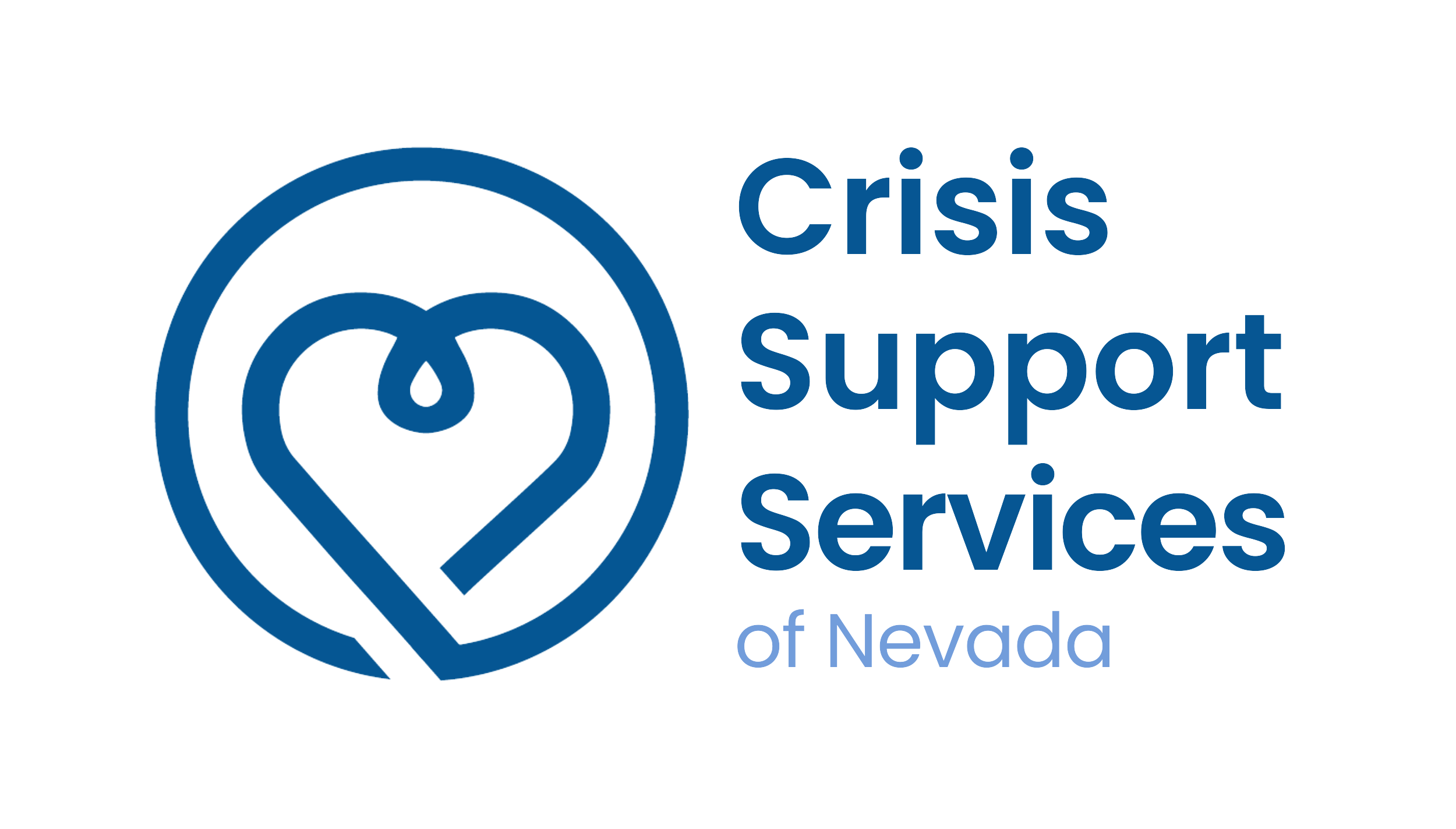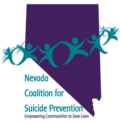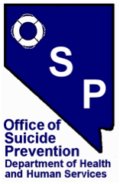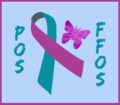Support for Survivors of Suicide Loss
A recent study estimates that for every death by suicide, 135 people are affected.Survivors of Suicide Loss (SOSL) often don't know where to turn after the loss of a loved one to suicide.
The emotions from this type of sudden loss can be quite complex and confusing and Crisis Support Services of Nevada available at any time to help individuals coping with suicide loss.
Our Survivors of Suicide Loss Support Program is not currently available. Please scroll down to view local and national resources for Survivors of Suicide Loss.
Crisis Support Services of Nevada provides 24/7 comfort to those affected by suicide and offers local and national resources to support continued healing for those who are coping with the suicide death of a loved one.
Along with the crisis hotline, CSSNV offers a weekly SOSL Support Group, monthly SOSL newsletter and yearly SOSL events to help with the healing process, to remember those lost to suicide and to spread awareness of the importance of suicide prevention.
Survivors of Suicide Loss Support Group
Adult self-help support groups led by a facilitator are available for individuals who are coping with suicide loss. To attend the Northern Nevada SOSL group, call the Crisis Support Services of Nevada business office at 775-784-8085 and ask about SOSL or email SOSL@cssnv.org
Lifelink Newsletter for Survivors of Suicide Loss
A monthly newsletter distributed by Crisis Support Services of Nevada that highlights relevant issues specific to suicide loss. The newsletter includes poetry and prose written by survivors, upcoming events, and national SOSL conference schedules. To join the newsletter, call the Crisis Support Services of Nevada business office at 775-784-8085 and ask about the SOSL newsletter or email SOSL@cssnv.org.
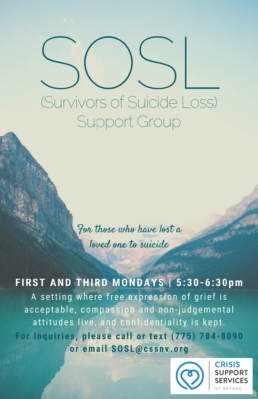
Survivors of Suicide Loss Support Group
The Survivors of Suicide Loss (SOSL) Support Group is a free, confidential service provided by Crisis Support Services of Nevada. The group is designated for family members and significant others who have lost a loved one to suicide and is designed to help survivors cope with the tragedy and grief of suicide loss and the painful process of recovery.
- Cultivate a sense of belonging and affiliation.
- Support and affirm.
- Create a safe and comforting environment where survivors can share their feelings about their loss and find new ways of coping.
- Inspire hope.
- Educate and inform.
- Provide survivors with the skills to go on with their lives.
The information shared during support group meetings is confidential in nature with the exception of when any group member threatens suicide, homicide or physical and/or sexual abuse against another individual. Other information communicated during group meetings will not be disclosed to individuals who are not members of the group.
Nevada Resources for Survivors of Suicide Loss
A directory of support groups across the state with contact information.
Child, teen, and adult grief support including support for survivors of suicide loss.
Child, teen, and family grief support including support for survivors of suicide loss.
Articles about recognizing signs of suicide and how to take action.
National Resources for Survivors of Suicide Loss
Offers information about support groups available in the U.S. and a few other countries.
An online directory of resources and information to help them cope with their loss.
A newsletter with articles, research and innovative activities being implemented around the world.
Articles with strategies for coping, research and personal stories.
Information to help survivors understand the complex emotional aftermath of suicide.
A collection of message boards for people who have lost someone to suicide.
We’re here to help. 24/7.
If this is an emergency, please call 911.
Depression & Suicide Help
You are not alone. Crisis Support Services of Nevada is here to help you 24 hours a day, every day of the year, so that you can get to a better tomorrow. Our staff and volunteers are available to talk to you and offer free, confidential support through any crisis.
What To Do When You Feel Depressed
There are many things you can do to get to a better tomorrow. Consider doing the following if you are dealing with feelings of depression or suicide:
Call or text us.
We are here to listen and help. We’ve been there, and we care about you. We’re available 24/7. Call or text 988, or visit our Lifeline Chat to chat with a caring counselor.
Reach out to friends and family.
You are loved and valued. Talk to the people you are closest to and be honest about your feelings. Surround yourself with positive people that you can confide in without judgment.
Join a new community.
Whether you decide to go to church, take a class or start a new hobby, getting involved in a new community can help you feel less isolated.
Find a therapist or support group.
Talking with other people is an important part of getting through any crisis, particularly feelings of depression or suicidal intent. A therapist can work with you long term and give you means to cope.
Learn more about the available resources in your community by calling us any time at 988.
What is Depression?
Depression is a mood disorder that goes beyond sadness. It can manifest itself with feelings of hopelessness and worthlessness, which are unrelenting. People who are depressed or considering suicide may have anxiety, sleep too little or too much, isolate themselves and exhibit extreme mood swings. If you are feeling this way and wondering what to do when you feel depressed, know that you are not alone. We are here to help you get through your darkest moments to see a better tomorrow.
Facts About Depression and Suicide
Crisis Support Services of Nevada has spent decades helping people in crisis and working on suicide prevention. The numbers around depression and suicide in our home state are staggering.
In 2019 Nevada was ranked seventh highest rate of suicide in the U.S. at 20.84 suicides per 100,000 residents, US Suicide Rate is 13.93
In 2019 Suicide was the 10th leading cause of death in the U.S. but is the eighth leading cause of death for Nevadans.
In 2019 Suicide was the first leading cause of death for our youth/young adult Nevadans (12-19) and second leading cause of death for our adults (20-49)
For every teen that dies by suicide, it is estimated that 100-200 teens have attempted suicide.
Firearms are currently the most utilized method of suicide in all age groups. Reducing access to lethal means programs can increase time and distance for someone at risk of suicide.
In Nevada and across the nation, men suicide at a higher rate than women but women attempt at a increased occurrence.
Suicide occurs across all age, economic, social and ethnic boundaries.
The suicide rate is higher among the elderly (over 65) than any other age group.
How to Help Someone Who is Depressed
Learn the Warning Signs of Suicide and Depression
If you are concerned about a family member or friend, show you care and ask the question: Do you feel suicidal? Trust your gut instincts, and if you’re concerned, help get the person to support services they need.
How to Report and Approach Suicidal Content
If you are worried about someone based on their social media posts, the National Suicide Prevention Lifeline has compiled information on how to report suicidal content as well as how to approach those individuals.
I was in a very dark place when I called the Crisis Call Center. I was seriously considering stepping in front of a train. Ruthie answered the phone. She contracted with me to stay safe and offered a follow-up call for the next day. She changed my mind about taking my life!Anonymous Caller
